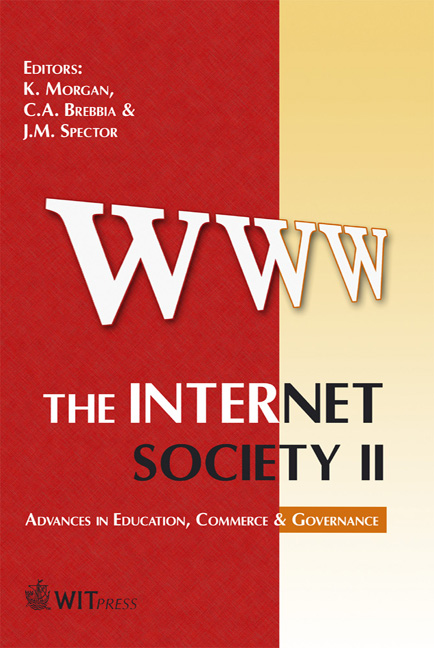We Like… Cultural Traits In Cyberculture
Price
Free (open access)
Volume
36
Pages
10
Published
2006
Size
334 kb
Paper DOI
10.2495/IS060231
Copyright
WIT Press
Author(s)
G. Fletcher & A. Greenhill
Abstract
This paper critically identifies a series of traits that are representative of contemporary cyberculture(s). From this identification the paper considers the way in which these traits – as they are specifically articulated in the spaces of the World Wide Web – enables the articulation of social solidarity through the continuous synthesis of conflict and conformity. A key claim is that cyberculture is not immune from the practices of conflict and aggression found elsewhere in ‘everyday life’. Effacing, or attempting to efface, these practices from a virtual provenance is argued to be a fraught agenda that ignores the ways that aggression promotes solidarity. This paper draws upon the empirical evidence of popular Web search terms to reveal the popularity and persistence of interest in a relatively small set of activities and ‘things’. A series of cultural traits are then consequently identified as being general preferences for freeness, participation, customisation, perversion and anonymity. These traits find expression within an information-rich environment that supports acts of conflict while also enabling expressions of conformity. The paper concludes with the observation that conflict and conformity are bound in a dialectic relationship that supports continuous (cyber)cultural dynamism and change. Keywords: cultural traits, solidarity, conformity, conflict, cyberculture, webbased search, information rich environment, everyday life. 1 Introduction: cyberculture and everyday life 1.1 Introduction This paper draws upon a series of ‘classic’ social science concepts and understandings to critically position the notion and meanings of cyberculture. The use of ‘traditional’ concepts reflects the central position of this paper that
Keywords
cultural traits, solidarity, conformity, conflict, cyberculture, webbased search, information rich environment, everyday life.





